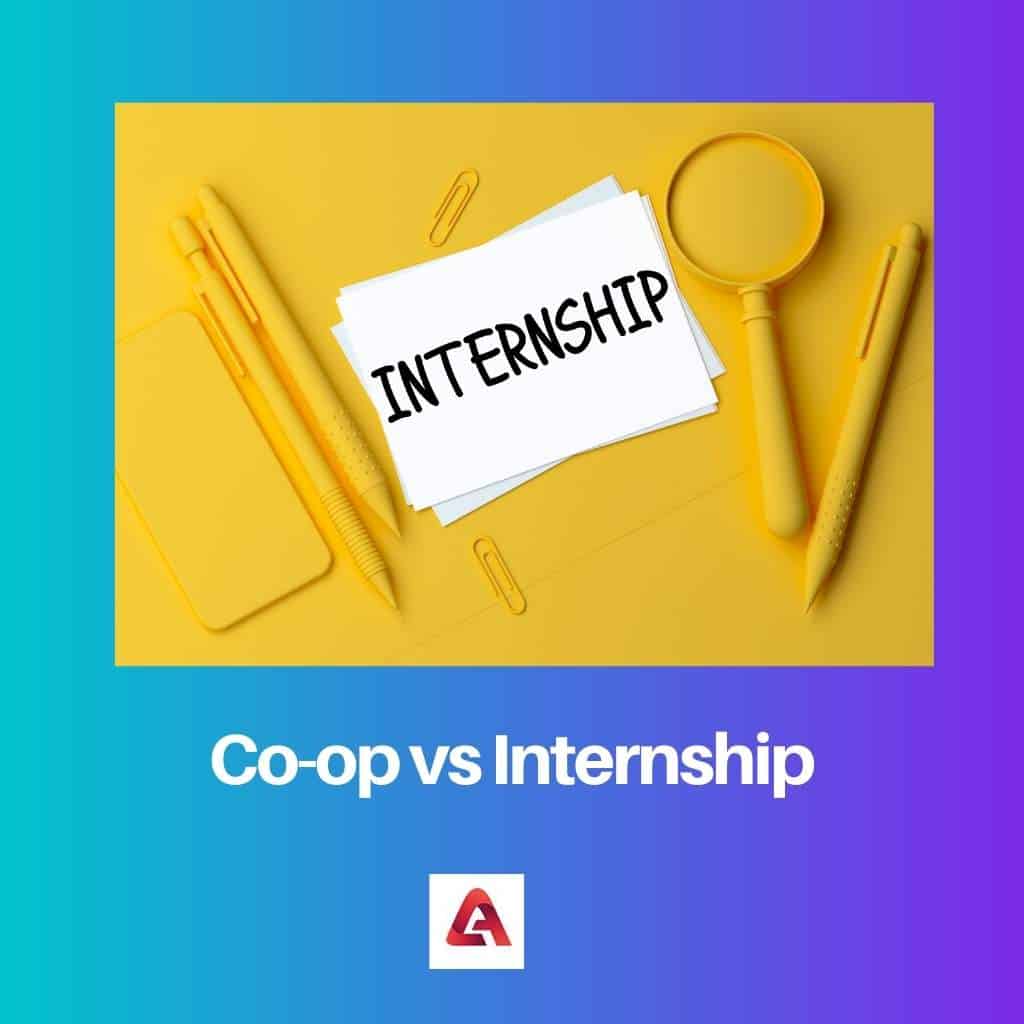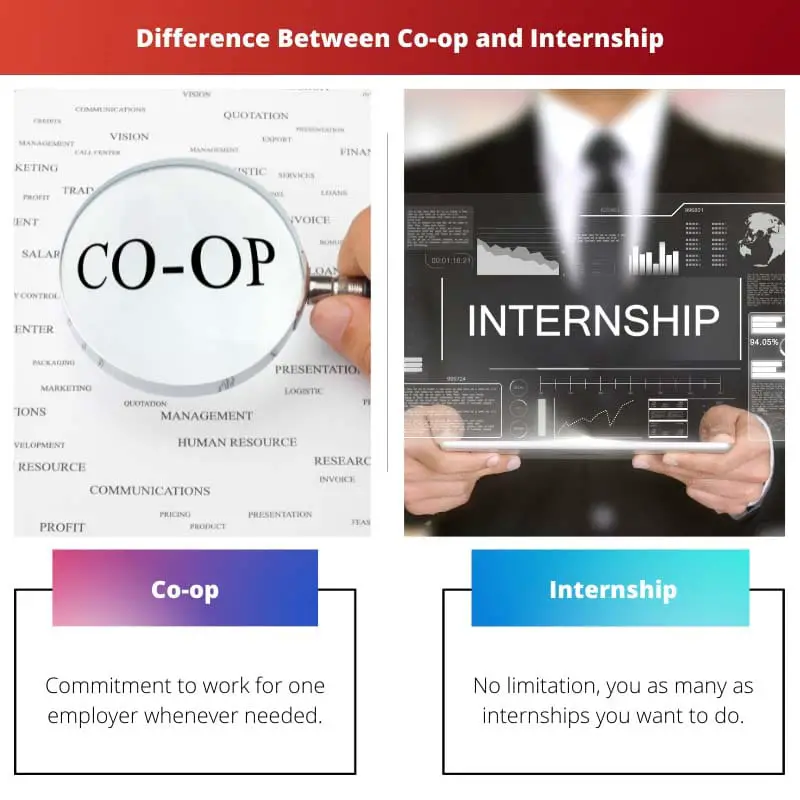Co-ops are For college and high school scholars who want to use their skills and abilities to gain experience in their chosen career path. Internships can provide beneficial experiences.
Key Takeaways
- A co-op program combines academic study with work experience, while an internship is a work experience program.
- Co-op programs are longer and require multiple work terms, while internships are shorter and only last a few months.
- Co-op programs are more structured and include more formal evaluations, while internships are more flexible and may not include formal evaluations.
Co-op vs Internship
Internships are brief work experience programs done by college students over a semester or so to gain work experience. Co-ops last for a longer duration while gaining work experience, added responsibilities, and increased educational knowledge. Co-ops are given preference over internships.

A co-op is a category of the teaching program. It combines the strategy of academic institutions with the management of practical experience in the workplace.
Internships are short-duration programs designed to provide hands-on training in certain professions. Internship programs are created for students interested in learning about a specific career.
Comparison Table
| Parameters of Comparison | Co-op | Internship |
|---|---|---|
| Duration | Multiterm | Long term |
| Work routine | Full time | Part-time or full time |
| Payment | Always paid | It May be paid or unpaid |
| Flexibility in work culture | Commitment to work for one employer whenever needed | No limitation, you as many as internships you want to do. |
| Time to complete your degree | You may need to take a semester break. Increases time to get the degree | You need to adjust yourself in a way to complete a degree and internship. It does not increase the time to get the degree |
What is Co-op?
A co-op which is also known as cooperative education is a type of experimental education that brings together classroom instruction with part or full-time work in an area relevant to a student’s major.
Students who take part in a co-op program take classes for one semester and then work and use their abilities in the next semester.
The student collaborates with their higher education institution to locate an appropriate employment program that fulfils their school’s co-op criteria.
Many students, on the other hand, conclude that the real-world experience, skill development chances, and networking possibilities that a co-op program compensates for the extra time it takes to finish the degree.

What is Internship?
An internship is a type of on-the-job training that allows a student to try out a job while still studying.
Internships are very popular among undergraduate and graduate students because they frequently allow them to start building the industry-oriented skills and abilities that they need.
Although few internships are compensated, the majority are not. Internships are undertaken by students to know the work culture and maybe receive credits in their degree.
Internships can last anywhere from four months to six weeks or even more. It can take place during the academic year and also in the summer and winter months.
Students can explore a specific field, acquire hands-on experience, and build key contacts during their internship time, which they might utilize in the job hunt.

Main Differences Between Co-op and Internship
- You can only undertake one co-op at a time, but you can apply for as many internships as you like.
- Because you are taking a semester break to work, working in a co-op program may cause your academic degree to take longer to complete. Internships do not lengthen the time taken to finish a degree.





